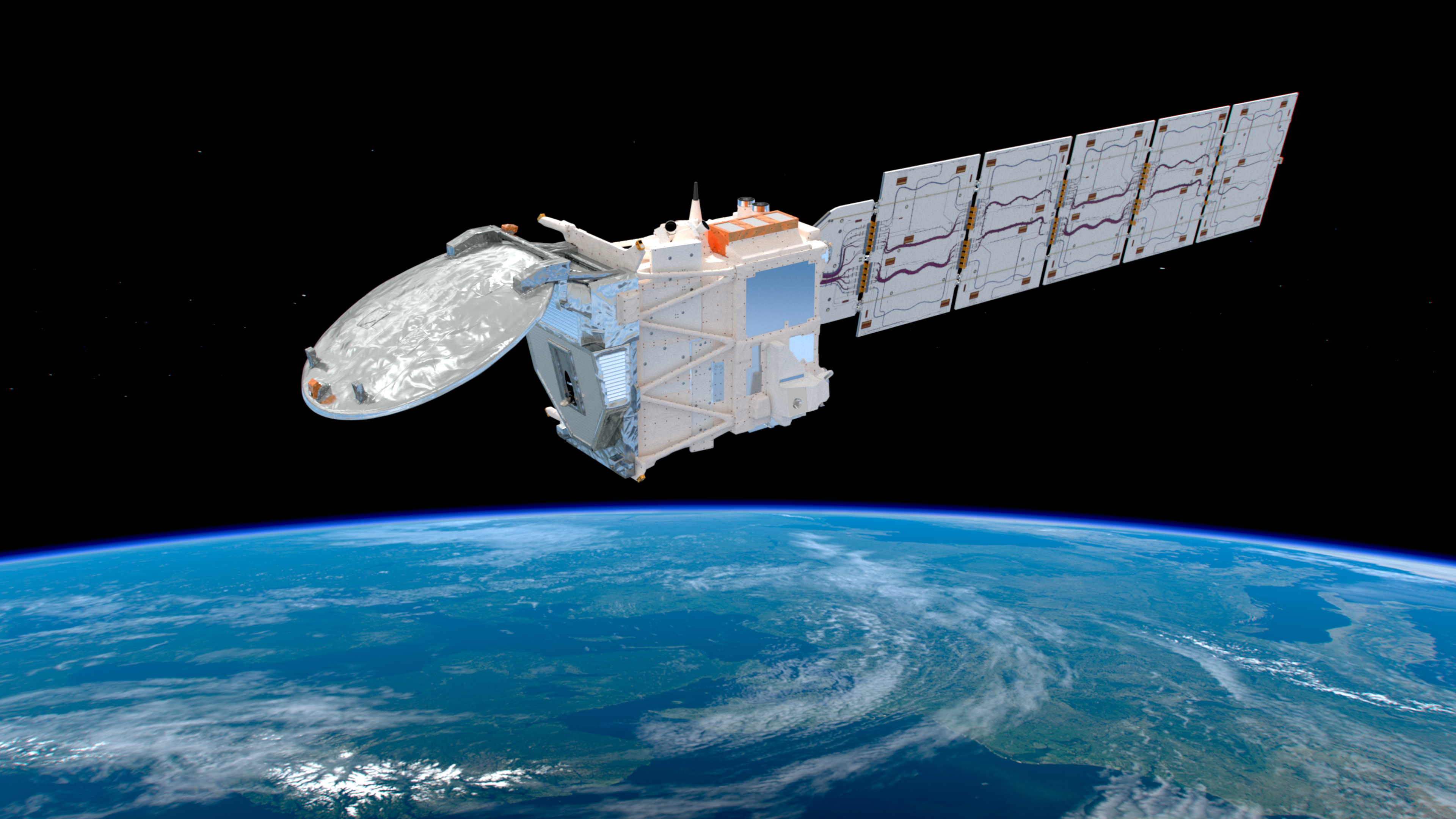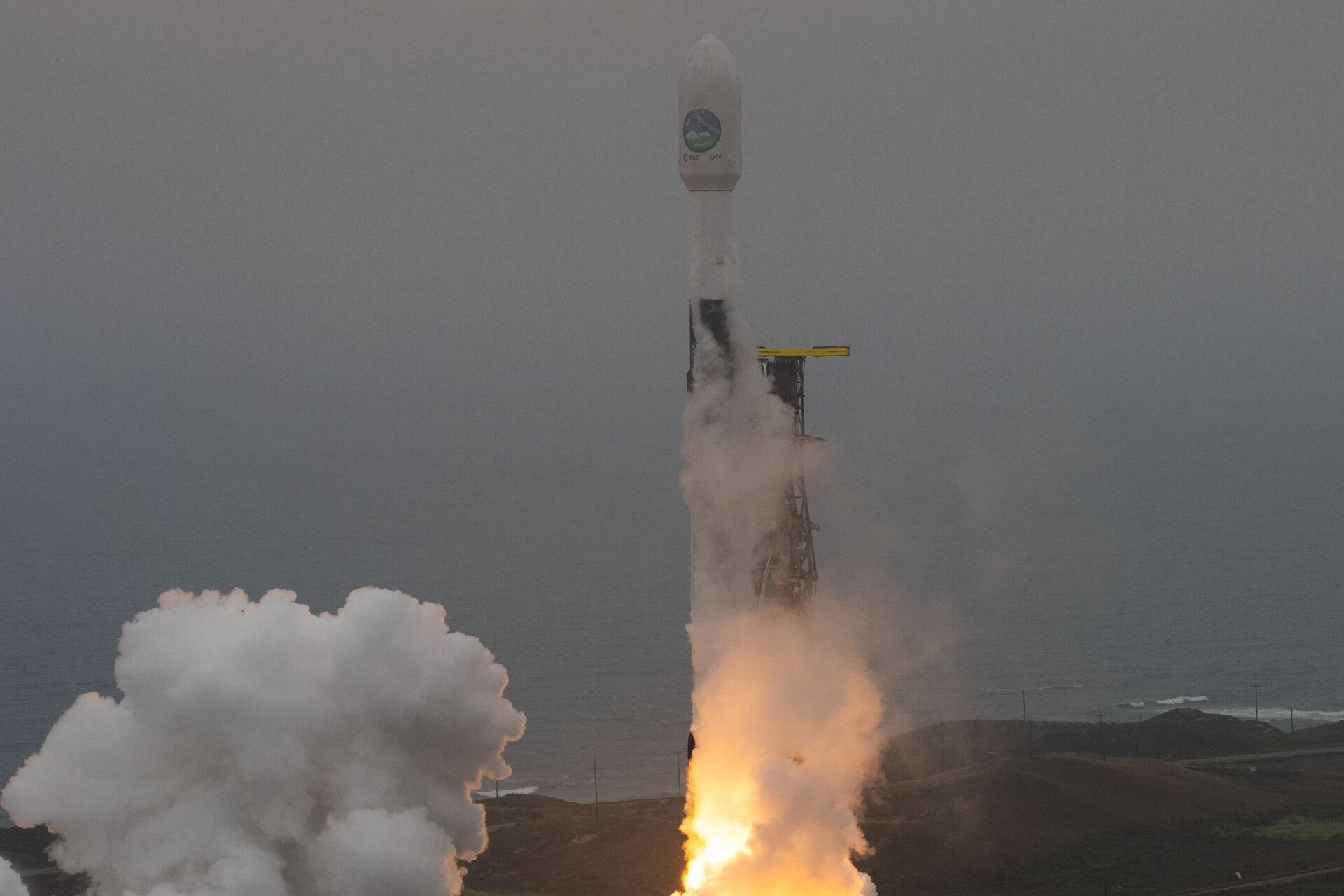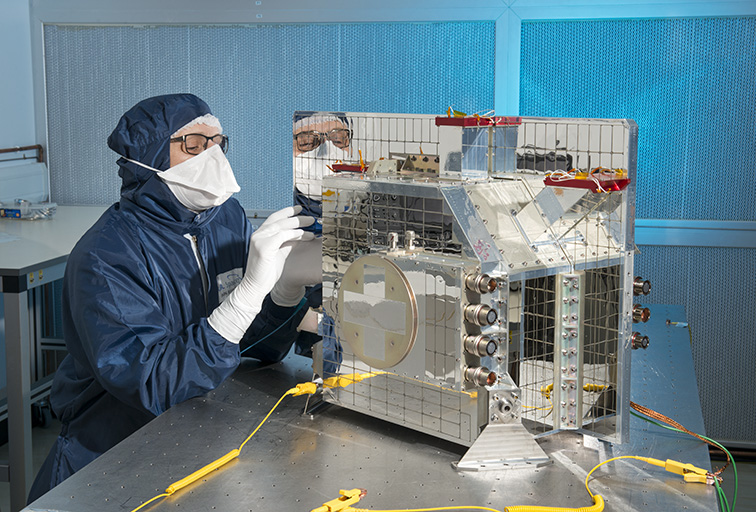
Artist's impression of EarthCARE in space. Credit: ESA / ATG Medialab
The Earth Cloud Aerosol and Radiation Explorer (EarthCARE) will soon deliver crucial information on the complex interactions between clouds, aerosols and radiation in our planet's atmosphere.
Clouds and aerosols – tiny particles such as dust and pollutants suspended in Earth's atmosphere – have important impacts on our climate. They can reflect incoming solar energy back out to space, leading to a cooling effect, or trap outgoing infrared energy from the Earth's surface, leading to a heating effect. The impact of individual clouds depends on factors including their shape, altitude, and water content.
Human activities including industrial processes and agriculture are significantly altering concentrations of aerosols in the atmosphere, which is also having an impact on regional climate patterns.

EarthCARE lifted off on a SpaceX Falcon 9 rocket from the Vandenberg Space Force Base in California on 28 May at 23:20 (BST). Credit: ESA - S. Corvaja.
A joint venture between the European Space Agency (ESA) and the Japan Aerospace Exploration Agency (JAXA), EarthCARE carries four state-of-the-art instruments. One of these is the Broadband Radiometer – BBR.
BBR will use three telescopes looking in three directions at once to study the amount of reflected solar radiation and emitted terrestrial heat. RAL Space designed and built this complex telescope assembly and contributed to the overall thermal design of the instrument. Most of the instrument's environmental testing and calibration was also performed at RAL Space facilities. BBR's overall development was led by Thales Alenia Space in the UK.

The Broadband Radiometer being inspected in the lab at RAL Space. Credit: STFC RAL Space
EarthCARE is now being controlled from ESA's European Space Operations Centre in Darmstadt, Germany, where controllers will spend the next few months carefully checking and calibrating the satellite.
Dr Will Grainger, Systems Engineering Group Lead and Calibration Scientist for BBR, said:
“Watching EarthCARE embark on its journey to space is an exciting moment for everyone involved with the mission. Collaborating with TAS UK on the Broadband Radiometer was a big project for many of us here at RAL Space, so it's really rewarding to see several years of hard work paying off. I'm excited to see the instrument being used and how it will impact our understanding of Earth's climate."
